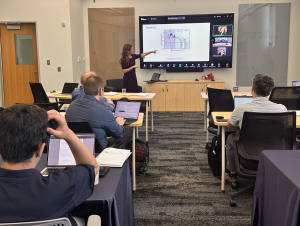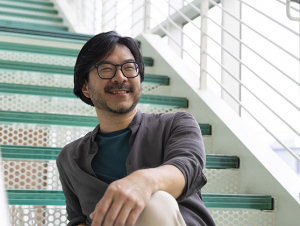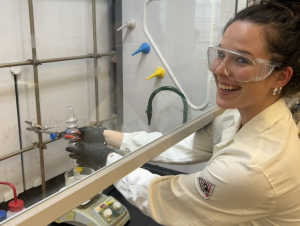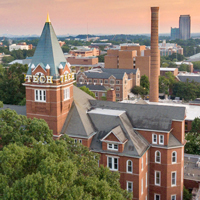Latest News
Georgia Tech is leading a revolutionary NASA mission to image black holes from space, overcoming the limits of Earth-based telescopes. With twin orbiting instruments, the SPRITE project could unlock unprecedented views of the universe’s most mysterious objects.
Researchers have discovered evidence that a mountain on the rim of Jezero Crater — where NASA’s Perseverance Rover is currently collecting samples for possible return to Earth — is likely a volcano. The research could add critical clues to the habitability and volcanism of Mars, transforming how we understand Mars’ geologic history.
Eric Shen loves art and science in equal measure — and believes it’s possible for creatives to build STEM careers that foster joy. Learn about his unexpected path to becoming a research engineer in the School of Chemistry and Biochemistry.
The concept, cool yet maybe a little creepy, is known as mind uploading.
For her first undergraduate research experience, Marielle Frooman did more than work in the McShan lab — she helped lead research that could shape the future of malaria treatment.










